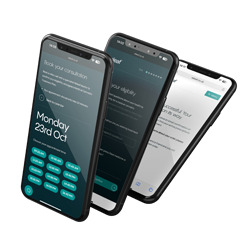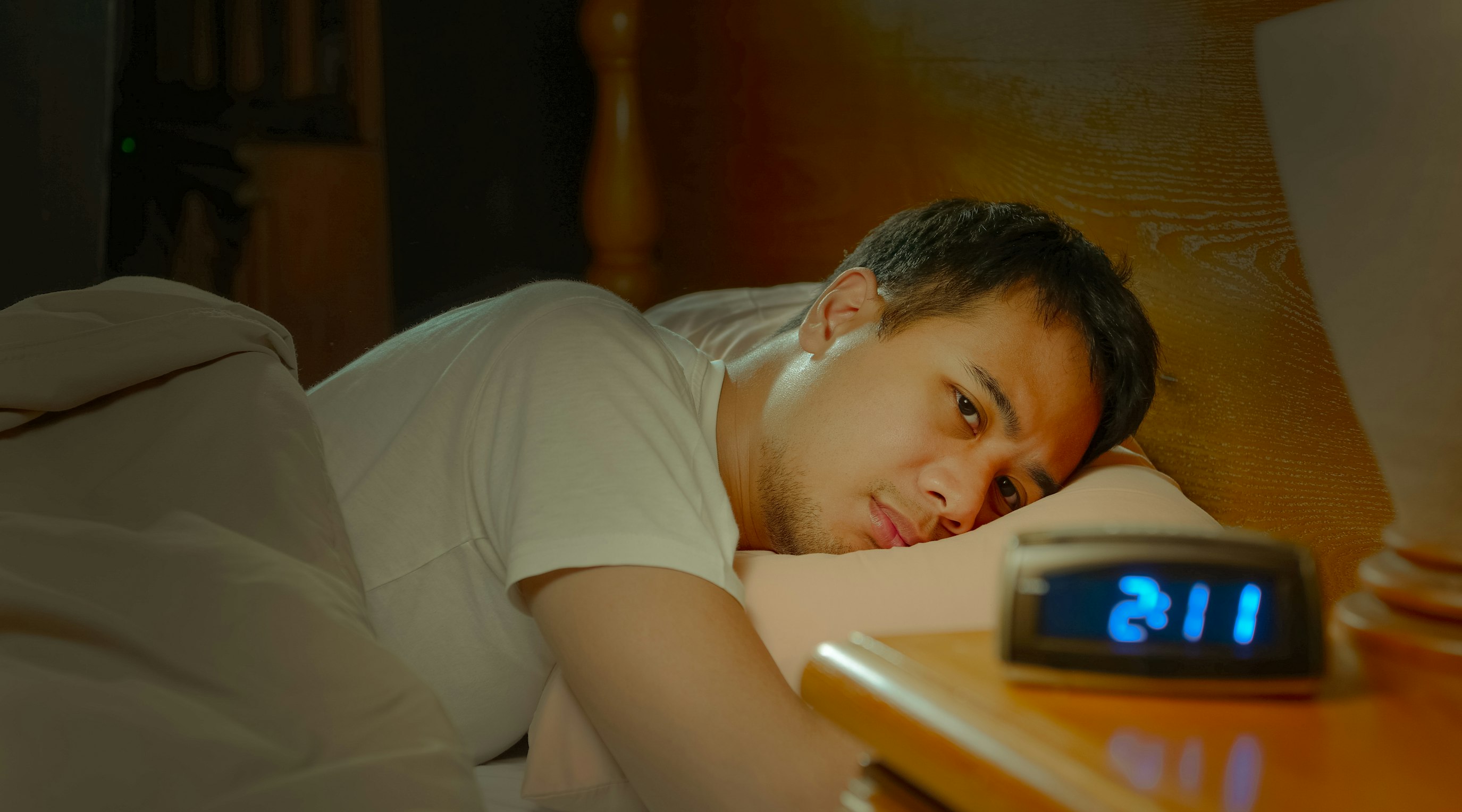Finding the right CBD dose for sleep and anxiety relief
7 min read
Sam North
Contents
What is CBD?
CBD is one of the main cannabinoids found in cannabis and hemp plants. In recent years, cannabis has become an increasingly popular potential therapeutic option for a range of wellness issue, including sleep disorder and anxiety.
CBD works with the body’s endocannabinoid system (ECS), which plays an important role in maintaining homeostasis (balance) within the body. The ECS is made up of cannabinoid receptors located throughout the central and peripheral nervous system, our own cannabinoids (endocannabinoids) that interact with the receptors, and enzymes that break down endocannabinoids after they have completed their function.
Phytocannabinoids (cannabinoids produced by cannabis and hemp) also have the ability to interact with the ECS, and with other systems in the body. It is believed that CBD can help to modulate the effects of our ECS and may be beneficial in providing relief from a wide range of ailments, including anxiety and sleep issues.
CBD is a fascinating compound. Unlike THC, which has been shown to have a strong interaction with either of the ECS receptors (CB1 and CB2), CBD seems to play more of a peripheral role.
CBD dose for sleep and anxiety
Many believe that the way CBD interacts with the ECS is part of what makes it potentially beneficial in providing relief from a variety of physical and psychological conditions. Instead of strongly binding to the receptors, it is thought that CBD reduces the enzymatic breakdown of our endocannabinoids, leading to higher levels of them circulating in our bodies and longer interactions with the CB1 and CB2 receptors.
It has also been shown to potentially interact with the receptor responsible for serotonin production, and it seems to have the ability to boost serotonin levels. Serotonin plays a significant role in the way that we process emotions and is involved in regulating mood, appetite, sleep, and pain perception.
When looking into how CBD may affect both sleep and anxiety, there are a few key studies that can be used as reference points.
One study, published online in January 2019 titled “Cannabidiol in Anxiety and Sleep: A Large Case Series” goes into detail about how CBD could modulate both sleep and anxiety. The study looked at 72 adult patients with anxiety and or poor sleeping habits. Most of the participants were given a dosage size of 25 mg per day (considered a small dose), with a handful of patients being offered slightly higher doses of 50 mg or 75 mg per day (also on the lower end of the dosage scale).
For patients with sleep concerns, the CBD was administered once daily, after dinner. For those looking for relief from underlying anxiety conditions, it was taken just after breakfast, again daily.
The results seem to be quite conclusive. Most of the patients reported experiencing relief from both anxiety and sleep issues. “Anxiety scores decreased within the first month in 57 patients (79.2%) and remained decreased during the study duration. Sleep scores improved within the first month in 48 patients (66.7%)”. It should be noted that the improvement in sleep quality did fluctuate over time, and that the CBD treatment was “well tolerated in all but 3 patients”.
Another study, this time from 2017, looked at how larger doses of CBD may help treat acute anxiety symptoms. This trial focused on anxiety from a public speaking standpoint and again employed differing dosage sizes to see if the CBD had any impact.
The trial found that participants who took 300 mg of CBD before their public speaking engagement reported feeling significantly less anxiety after the speech had been made. Those that were offered a larger dose of 600 mg reported fewer anxiety symptoms both during and after public speaking.
Then we have this paper from 2010, one of the first clinical trials that investigated the possible efficacy of CBD as an anxiety treatment option. The trial focused on people suffering from acute social anxiety disorder and found that those offered a single dose of 400 mg reported “significantly decreased subjective anxiety” over the subjects that had taken the placebo.
The final piece of evidence we looked at for this article is this study which focused on CBD and PTSD treatment. While small in scope, with only 11 participants, the results, again, seem to be quite conclusive. PTSD is an extreme form of anxiety, with sleep issues being one of the main symptoms. In this trial, over 90% of those that took a daily dose of CBD for two months reported lower levels of PTSD-related nightmare frequency and sleep disturbances, with overall anxiety levels also dropping to a more manageable state.
The evidence presented from these four studies shows that CBD may have the potential to provide relief for those suffering from anxiety and sleep issues, but the need for further scientific inquiry is every present. Currently, there is simply not enough evidence to support any sweeping statements regarding the efficacy of CBD in treating or curing anxiety. There are also some factors that need to be considered.
Factors to consider when using CBD for anxiety and sleep
We have mentioned that there is still the need for further research with regard to using CBD as an effective anxiolytic and sleep aid. But, on top of the need for further research, there are some elements that you should take into consideration when looking to take CBD for either of these issues.
Firstly, it’s important to note that everyone will react differently when using CBD. Individual tolerance is key here, and the correct dosage size must be determined for each patient. Dosage sizing will be decided upon by your prescribing doctor.
It’s also essential to understand that the effects of CBD will usually not be felt immediately. While the evidence above does show that medium to high doses of CBD may be effective in reducing subjective levels of anxiety and improving sleep, lower doses taken daily over a few weeks may be more suited to those looking for long-lasting relief.
The method of CBD administration is also something that needs to be considered. CBD treatment options come in many forms, from capsules to tinctures, topicals, oils, flowers, and edibles. There is no ‘one-size-fits-all’ approach to CBD treatment. It is going to depend on the severity of symptoms, along with individual preference.
It is absolutely imperative that before you consider adding CBD to your current treatment plan, you first talk to a qualified healthcare professional. CBD is best employed alongside conventional pharmaceuticals and therapy.
While CBD has the potential to offer relief, like any additional treatment, a qualified medical professional must prescribe it. Thanks to changes made in November 2018, medicinal cannabis (CBD included) is now totally legal in the UK, but to access it you must consult with a specialist.
Conclusion
Although there is a growing body of research that suggests CBD could be an effective anxiolytic and sleep aid, more research and clinical trials are needed to confirm its efficacy beyond doubt. It is important to remember that individual tolerance and the correct dosage are key when it comes to using medical cannabis for anxiety and sleep issues. It is essential that you consult with a qualified doctor before making any decisions on your treatment plan.
Here at Releaf, we believe that access to medical cannabis is a basic right for those who which to explore natural therapeutics. That's why we offer tailored monthly packages based on your cannabis prescription, specialist consultations for medical cannabis, and a unique medical cannabis card for protection.
With our team of fully trained medical cannabis professionals on hand, we are here to provide you with the support and advice you need to ensure that taking CBD is as beneficial for you as possible.
Share article
Did you like this article?
It is important to seek medical advice before starting any new treatments. The patient advisors at Releaf are available to provide expert advice and support. Alternatively, click here to book a consultation with one of our specialist doctors.
Elevate your wellness with medical cannabis
Get comprehensive care, convenience, and confidence with an all-in-one treatment plan.
Am I eligible?Authors
Sam North, a seasoned writer with over five years' experience and expertise in medicinal cannabis, brings clarity to complex concepts, focusing on education and informed use.
medically reviewed
Editorial Policy
All of our articles are written by medical cannabis experts, guided by strict sourcing guidelines, and reference peer-reviewed studies and credible academic research. Our expert clinical team and compliance specialists provide valuable insights to ensure accuracy when required. Learn more in our editorial policy.
Need more help?











